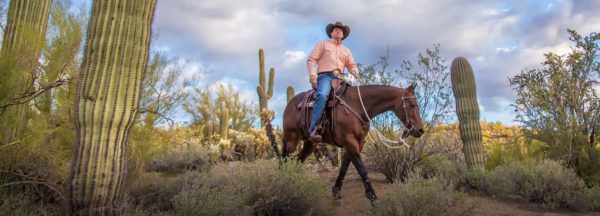Training Tip: Drop Your Rescued Horse’s Baggage

Don’t treat a rescued horse any differently than a regular horse. Making excuses and special allowances for an abused horse’s bad behavior will only limit him, while treating him the same as any other horse will actually accelerate his progress. All horses are looking for a leader that will keep them safe, but while horses are natural followers, they only want to follow a leader they respect and trust. Every day your horse will test you to see if you deserve to lead him, which means that you have to be worthy of your leadership role. You have to prove to him that you can move his feet forwards, backwards, left and right and are always willing to reward the slightest try. All of the exercises in the Method are geared toward developing a relationship, building trust and earning the respect of a horse. For that reason, it’s the perfect remedy for horses that have been abused and neglected by humans. Although abuse is a terrible thing, once a horse is brought back to health, treating him just the same as you would treat any other horse breaks the cycle of abused-related behavior and sets you on the track to enjoying a great partnership. It’s absolutely amazing to see how quickly the horse will start to trust and respect you if you treat him like any other horse.
